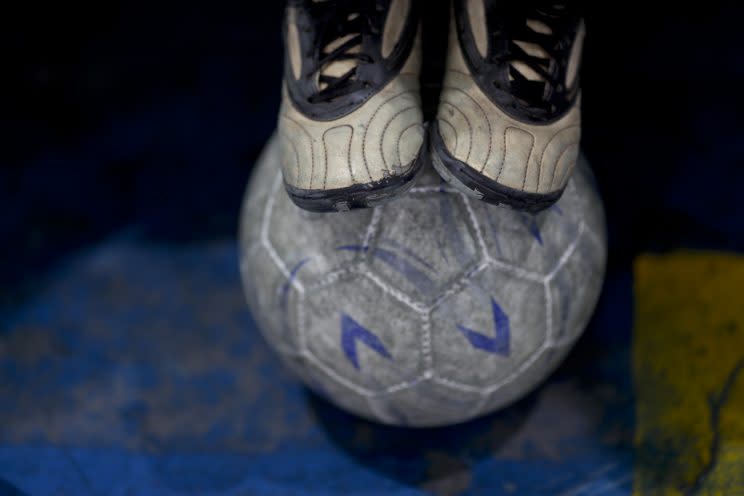Youth soccer league calls for parents to be silent ... and that's a good thing

A new message for soccer moms and dads in South Carolina:
Shush.
The South Carolina Youth Soccer Association has called for a “Silent September,” where parents at games cannot cheer, yell or berate referees. Parents must sign a form acknowledging the new code of conduct in order for their child to play. They must also stay on the half of the field opposite their child’s bench. And after two warnings, offending parents will be dismissed.
That ALL CAPS TYPING you hear is commenters on social media and message boards (and probably the space below this story) throwing out buzzwords like “PC Police,” “Participation Trophy,” “Snowflake,” and “Safe Space.” Of course, if you’re someone who speaks without listening or types without reading, you might be part of the problem here. All of us know a parent who screams too much at games, but no one actually admits to being that parent.
Consider this question: would you want to be a youth referee? Would you want to run around on a hot field all morning, getting tongue-lashed by some know-it-all dad in Oakleys and Birks holding a triple vente latte, all for a few bucks, if that?
A personal story: a soccer referee works out at my gym. He travels all over Florida on the weekends and trains during the week. It’s not glamorous and it’s not lucrative. Recently, he showed up early at the gym on a Monday and told a story about calling a penalty kick late in a match involving teenagers. He needed a police escort to get to his car.
Another personal story: a friend of mine refs youth soccer when he’s not doing his real job. Just a few weeks ago he asked a parent to keep it down and the dad clapped back, “I’ll see you in the parking lot.” His Central Florida league already has a rule stating that if a referee asks for a parent to stop yapping and he or she doesn’t do so, the official has to stop the game. The rule hasn’t even been in place for a year and my friend has already had to stop a match and declare a forfeit.
“I’m an adult,” says my friend, whose name is Ryan. “When somebody does that to a kid who is 14 or 15 [refereeing a game], I don’t want to subject my kid to that. And the kid doesn’t want to come back out. There’s a huge exodus among refs. They feel the abuse factor.”
This is also an issue in South Carolina. “We’re only retaining about 30 percent of our referees each year,” Kenneth Ayers, the state referee administrator for soccer in South Carolina, told WCNC. “We have 16, 15-year-old kids who are being berated and, quite frankly, assaulted by the sidelines.”
Read that last line again: “We have 16, 15-year-old kids who are being berated and quite frankly, assaulted by the sidelines.”
Seriously? Going after a kid who can’t even drive himself to the job, who is probably making a few bucks for a game, who is probably taking time away from homework or lawn-mowing to ref on the side? What South Carolina is doing isn’t permanent; it’s a cooling-off period – a time out, basically – and it sounds like it’s needed.
“This rule is dead-on,” says Pete Pullen, the head of school at Eton Academy in Michigan (and a former coach). “People forget the point of this experience, and that it’s a learning experience.”
This problem goes all the way up to the top echelon of sports. It’s hard to find a famous coach who doesn’t yell at referees. Leaders of men like Mike Krzyzewski, Tom Izzo and Jim Harbaugh all do it. Far from criticizing it, media and fans adore it. In fact, quieter coaches are taken to task for not doing it more. So if millionaires are lauded for “working the refs,” it’s not hard to see why weekend wizards do it, too. My friend Ryan once asked a youth coach why he constantly yapped at him, and the reply was, “If I didn’t do it, I wouldn’t be doing my job.”
The overall result of this is, ironically, worse officiating. Fewer young people are interested in refereeing, fewer last a long time, meaning fewer end up being truly good referees. And that means more for parents to get needlessly angry about – at all levels.
So the rule being instituted in South Carolina is actually just as much for the sport as it is for the parents. In our social media age, where outrage is in endless supply, officials deserve a little more peace and quiet. So do players.
“The game can go on without you,” Ryan says of hostile parents. “The game can’t go on without me.”
And if you’d like to take issue with that, the comment area is below.
